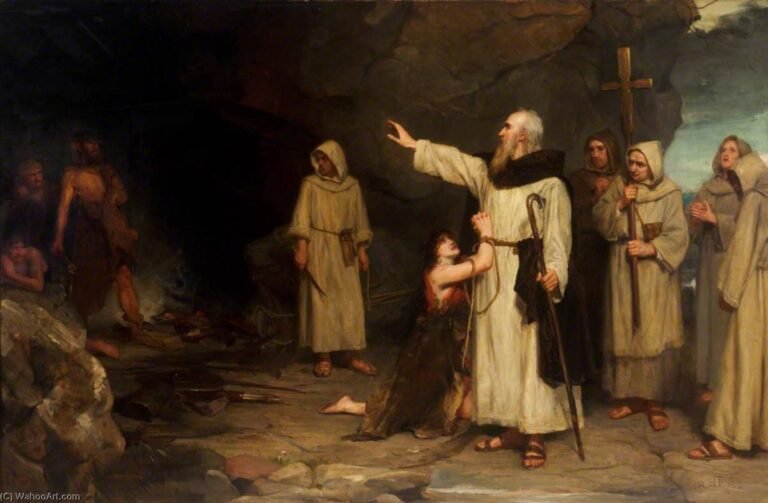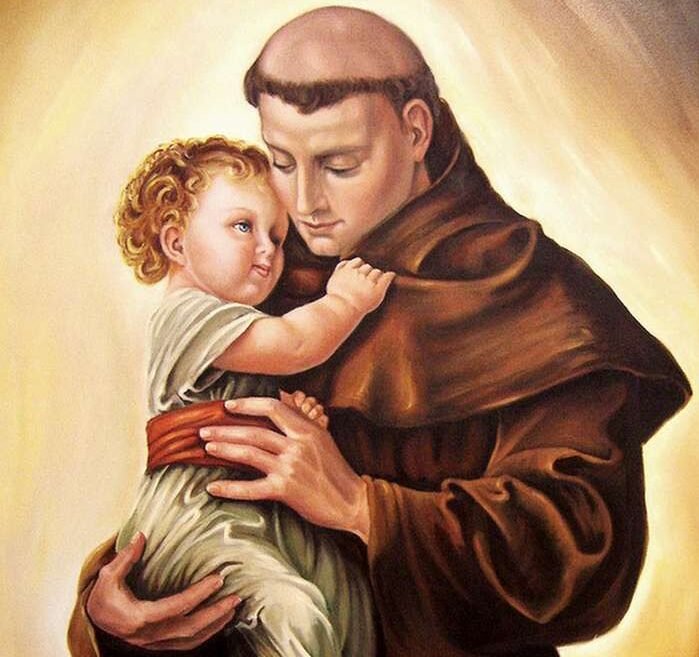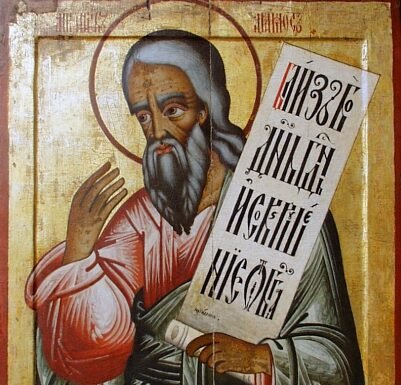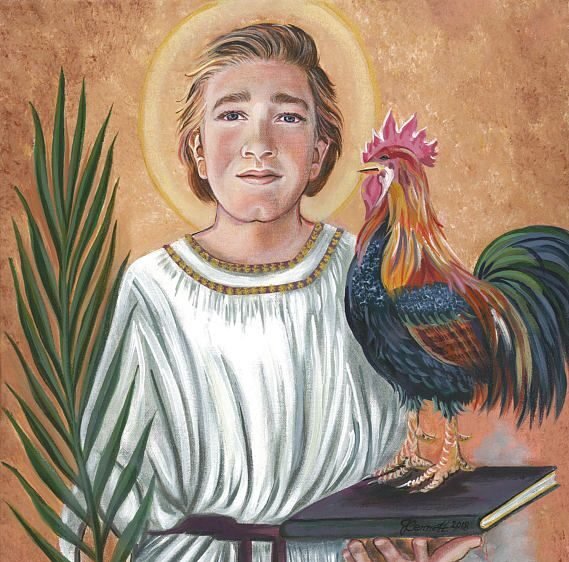The term Abrahamic religion groups together three of the major religions (Judaism, Christianity, and Islam) due to their historical coexistence and competition; it refers to Abraham, a character mentioned in the Hebrew Bible, the Christian Bible and the Quran, and is used to show the similarities between these religions and contrast them with Indian religions, Iranian religions and religions of Asia Eastern (although other religions and belief systems may also refer to Abraham).

Contents
ToggleAbrahamic religious festivals
Holidays of the month
June 8, 2025 (1 event)
–
June 8, 2025
Today, Christians celebrate Saint Médard. Best known for the institution of La Rosière, Saint Médard is the patron saint of imprisoned people, people with mental illness or migraines and neuralgia, farmers and brewers. He is invoked against bad weather, for (or against, as the case may be) rain - hence his nickname "rainy saint". #mythology #myth #legend #saintMedard #France #8June #Rosière
June 9, 2025 (1 event)
June 9, 2025

Today, the Scots celebrate Saint Columba. This Irish emissary introduced Christianity to the north of England, notably on the island of Iona where he created his monastic order. #mythology #myth #legend #calendar #9June #SaintColumba
June 13, 2025 (1 event)
June 13, 2025

Today, Christians celebrate Saint Anthony of Padua. It is notably the subject of chapters 39 and 40 of the legendary stories The Fioretti of Saint Francis of Assisi. Represented as a young, slender man holding the Child Jesus in his arms seated on a Bible, he is one of the most popular saints. #mythology #myth #legend #calendar #padua #antoniodipadova #lisbon #13June
June 15, 2025 (2 events)
–
June 15, 2025
Today, the Orthodox celebrate Amos, the third of the 12 minor prophets. According to the Bible, Amos was the oldest contemporary of Hosea and Isaiah and was active c. 760-755 BCE during the reign of kings Jeroboam II of Israel and Uzziah of Judah. The prophet is characterized as speaking out against increased disparity between the very rich and the very poor with themes of justice, God's omnipotence, and divine judgment. The Book of Amos is attributed to him. #mythology #myth #legend #calendar #June 15 #Amos #Bible #OldTestament
June 15, 2025

Today, Christians celebrate Saint Vitus or Saint Guy. His life is a legend, and this varies from region to region in Europe. #mythology #myth #legend #calendar #June 15 #saintvitus
June 16, 2025 (1 event)
–
June 16, 2025
Today, Catholics celebrate Saint Cyr. Martyred at the age of three, he was killed just before his mother, Saint Julitte, around 304. The Roman emperor Diocletian decreed a great persecution against Christians. Julitte, a widow and noblewoman, was a target by the government. She appeared in court with her son, and confirmed her belief. The child was taken from him, and struggling, he was thrown down the steps by the governor, he died with his neck broken. #mythology #myth #legend #calendar #June 16 #saintCyr #Christianity
June 23, 2025 (1 event)
June 23, 2025

Today, the Spanish and Portuguese make the fires of Saint John. Large bonfires accompany meals, songs and dances during the night before Saint John's Day. #mythology #myth #legend #calendar #June 23 #saintjean #alicante
June 24, 2025 (2 events)
June 24, 2025

Today, Christians celebrate Saint John the Baptist. He is the prophet who announced the coming of Jesus of Nazareth. He baptized him on the banks of the Jordan, letting some of his disciples join him. #mythology #myth #legend #calendar #June 24 #jeanlebaptiste #saintjean
–
June 24, 2025
Today, Filipinos celebrate Wattah Wattah or Basaan. Saint John is the patron saint of San Juan and other smaller towns on the islands. Children and adults walk the streets and generously sprinkle water on passers-by or travelers, with the traditional basaan (wetting of water) or buhusan (sprinkling of water) - to remind them of their baptism. #mythology #myth #legend #calendar #June 24 #WattahWattah #Basaan #Pilippines
June 29, 2025 (1 event)
June 29, 2025

Today, Christians celebrate Saints Peter and Paul. For the Orthodox as well as Eastern Christians, this feast also marks the end of the fasting of the apostles. It is considered a day when Christians must attend a night vigil or Vespers, as well as the Divine Liturgy. #mythology #myth #legend #calendar #saintpierre #saintpaul #29june
Cultural areas of Abrahamic religions
Jewish tradition claims that the twelve tribes of Israel are descended from Abraham through his son Isaac and his grandson Jacob, whose sons formed the nation of Israelites in Canaan; Islamic tradition claims that twelve Arab tribes known as the Ishmaelites are descended from Abraham through his son Ishmael in the Arabian Peninsula.
Christianity dates back to the 1st century as a sect of Judaism initially led by Jesus. His disciples considered him the Messiah, as in Peter's Confession; after his crucifixion and death, they came to view him as God incarnate, who had been resurrected and would return at the end of time to judge the living and the dead and create an eternal Kingdom of God.
In the 1st century AD, under the Apostles of Jesus of Nazareth; Christianity spread widely after being adopted by the Roman Empire as its state religion in the 4th century AD. The apostle Paul interpreted the role of Abraham differently from the Jews of his day. While to the Jews Abraham was seen as a loyal monotheist in a polytheistic environment, Paul celebrates Abraham as a man who found faith in God before adhering to religious law. Unlike Judaism, adherence to religious law is associated with idolatry.
Islam is based on the teachings of the Quran. Although it considers Muhammad to be the Seal of the Prophets, Islam teaches that every prophet preached Islam, since the word Islam literally means submission, the main concept preached by all prophets. Although the Quran is the central religious text of Islam, which Muslims believe to be a revelation from God, other Islamic books considered to be revealed by God before the Quran, mentioned by name in the Quran are:
* the Tawrat (Torah) revealed to the prophets. and messengers among the children of Israel (Bani Israil), the Zabur (Psalms) revealed to Dawud (David) and the Injil (the Gospel) revealed to Isa (Jesus). The Quran also mentions that God revealed the scrolls of Abraham and the scrolls of Moses.
The relationship between the Islamic and Hebrew scriptures and the New Testament differs significantly from the relationship between the New Testament and the Tanakh. While the New Testament draws heavily on the Tanakh and interprets its text in light of the foundations of the new religion, the Quran only alludes to various Tanakh stories and biblical writings, but remains independent of both, focusing on establishing a monotheistic message by using the stories of the prophets in a decentralized religious environment.
In the 7th century AD, Islam was founded by Muhammad in the Arabian Peninsula; it spread widely during the first Muslim conquests, shortly after his death. Islam understands its form of "Abrahamic monotheism" as preceding both Judaism and Christianity, and in contrast to Arab henotheism.









